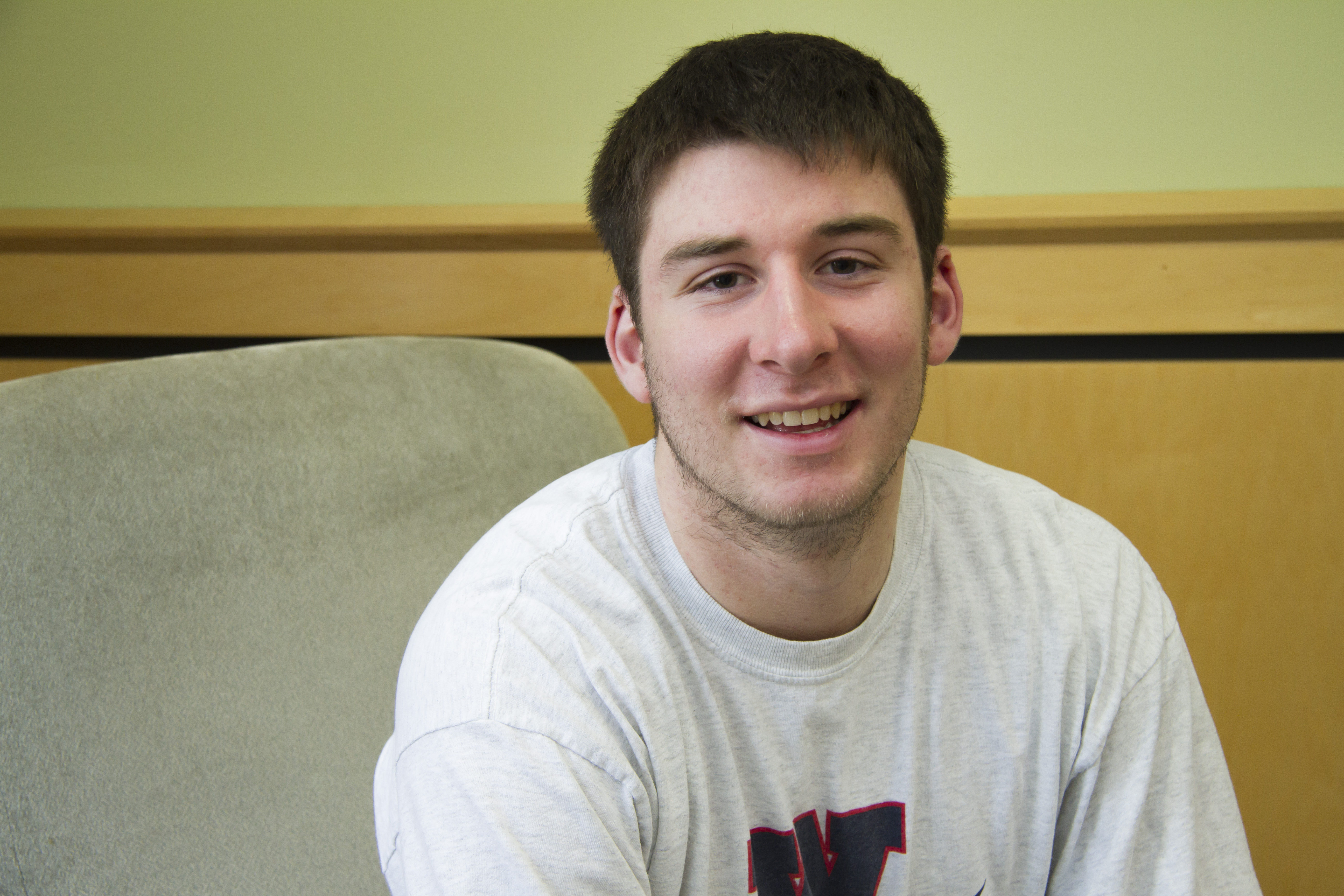Undergraduate Michael Muldoon finds meaning on a journey toward a 'new normal'

Resilience is a quality impossible to measure until it is tested.
For Michael Muldoon of Fairfax, Va., a sophomore majoring in psychology in the College of Science, the test began two years ago when his life changed dramatically. During the second semester of his freshman year, Muldoon noticed he was depressed and had difficulty concentrating.
“I was having a hard time, but I put on a happy face,” said Muldoon. In the summer of 2012, an MRI revealed the diagnosis: brain cancer.
“To tell you the truth, it was a relief to be diagnosed,” said Muldoon. “For me, it was better to know than not to know.”
A tough year of treatment followed, during which the support of his family was vital. It included surgery, hemiparesis, rehabilitation, chemotherapy, and radiation. By fall 2013, Muldoon was ready to return to Virginia Tech.
“Coming back to school helped me break out of a low energy cycle and some of the problems exacerbated by treatment,” he said.
But it wasn’t as simple as picking up where he left off.
“I’ve done a lot of adjusting – in my study routine, academically, and socially,” said Muldoon. Part of adjusting was learning to accept accommodation. During his initial transition back to college, Muldoon had an academic coach as well as doctors who help him manage his progress, both physical and mental. “The university has been incredibly supportive,” he said. “The people in the administration have been warm and accessible.” Ultimately, though, it was Muldoon’s own initiative and positive outlook that had the biggest impact.
Muldoon said he now values his education more.
“I have a new perspective. I know what is important in life. I’m more confident in my beliefs. I have new academic and career interests.” He said his experience has sparked a new curiosity in neuroscience, behavior, and psychological abnormalities, and that he can see himself working with people with disabilities.
Muldoon is also considering a minor in science and religion, and is interested in taking more science and technology in society classes.
Muldoon’s time outside of class is spent on activities that contribute to the university community. He has been involved in Actively Caring for People, is the Residential Hall Federation representative to the SGA, and a member of the Student Life Council.
Last fall he helped organize “Buzzing for Change.” Held on the Squires Student Center plaza, the event offered free head-shaving, and raised $5,000 for Friends of Special Love, a group devoted to raises funds and awareness of childhood cancer.
Muldoon is vice president of the organization. This spring, Muldoon is involved with a local leadership fraternity, Delta Psi Nu, and serves on the college council of the Honors Residential College as the historian.
“Sharing the experience has helped me come to terms with it,” said Muldoon. He opened himself to frank questions from his peers in the Honors Residential College at East Ambler Johnston. The presentation is posted to YouTube. “There is a hyper-sensitivity in people – they don’t know how to talk about it, so they don’t.”
Along the way, Muldoon has also had an impact on those around him. Frank Shushok, associate vice president for Student Affairs, said, “Michael was an inspiration to me before his cancer. He is one of the students who leans into life with a spirit of hope and possibility. His curiosity, enthusiasm and reverence for humanity are contagious. For me, getting to work with Michael makes me a better person.”
Muldoon was recognized his freshman year with an Aspire! Award for unwavering curiosity and recently attended a celebration of other students' embodiment of the Aspirations for Student Learning.
“It feels good to be active. I’m managing my ups and downs. I have my family and people like Dr. Shushok to bring my spirits up,” said Muldoon. “I’ve learned not to compare myself to my old self. I think I am pretty close to my ‘new normal’ now.”




